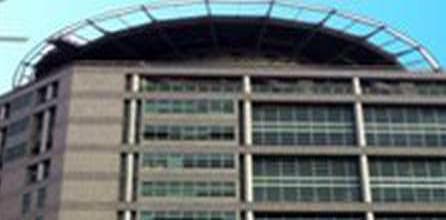GameteExpert Top Performers of Reproductive Science Scheme
|
April 2019 | As in previous years, GameteExpert selects the best performers of andrology and embryology assessment. This year the three frontrunners for andrology come from Portugal, Israel, and United Kingdom and for embryology from United Kingdom. |
Independently from UK NEQAS, GameteExpert determines the performance of each participant by calculating the match with calculated consensus. The ranking shown in this newsletter is in no relation to UK NEQAS and without input from them. Consequently, it gives no statement of performance in the UK NEQAS system. We considered only participants who have participated completely over the period of last two years. |
The UK NEQAS service will be carried out by the Central Manchester University Hospitals NHS Foundation Trust on behalf of United Kingdom National External Quality Assessment Service (UK NEQAS). |
||
| Next 4 distributions which will start in May, August and November 2019 and in February 2020 are open to new subscribers. Here you can find registration form, embryologie flyer, andrologie flyer and participants' handbook. For more information and registration, please contact repscience@ukneqas.org.uk. |
| Top Performers Andrology |
|
As a small team of three, including two further colleagues Andrea Afonso and Clara Ribeiro, an ISO-accredited diagnostic andrology service is provided. This lab has one basic licence.
Above the green curve are the best 25% of all participants (top performers), below the red curve |
Medicina Laboratorial Dr. Carlos Torres is a major laboratory in Porto, northern Portugal, and offers laboratory medicine services for the general community and private hospitals. Since 2006 it’s a Unilabs company.
|
|
|
The Male fertility and sperm bank unit in the Lis Maternity Hospital is a part of Tel Aviv Sourasky Medical Center in Tel Aviv, Israel.
|
|
|
IVI Midland (formerly Midland Fertility) based in Tamworth, Staffordshire has provided assisted conception services to both private and NHS-funded patients since 1987.
|
|
|
|
Top Performers Embryology |
|
Chelsea Buck joined the team in 2013 as a trainee on the STP, completing the programme and achieving HCPC registration in 2016. In addition to full participation in the daily activities of the lab, she also has shared responsibility for co-ordinating the release and use fresh, research consented embryos and is a STP training officer for one of the unit’s trainee embryologists.ing for Old Saint Mary’s Hospital .
Two of their senior embryologists, along with members of the andrology department are UKNEQAS Reproductive Science Scheme organisers and they are also heavily involved in the recruitment, teaching and training provided on the STP.wo of their senior embryologists, along with members of the andrology department are UKNEQAS Reproductive Science Scheme organisers and they are also heavily involved in the recruitment, teaching and training provided on the STP. This lab has one basic licence and fiftheen individual licences. |
St. Mary’s Department of Reproductive Medicine is based in Old Saint Mary’s Hospital, a Victorian landmark on Oxford Road in Manchester, which has been transformed internally into a modern assisted conception facility.
|
|
|
IVI Midland (formerly Midland Fertility) based in Tamworth, Staffordshire has provided assisted conception services to both private and NHS-funded patients since 1987. |
Back






















